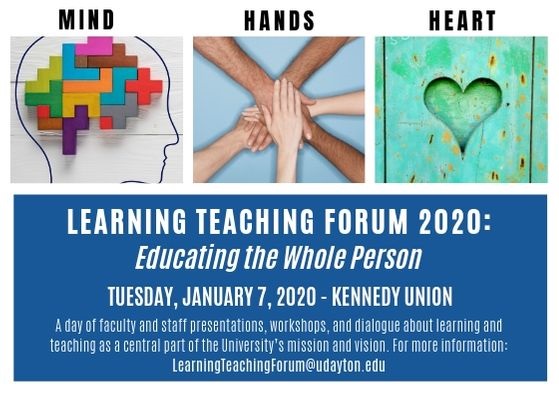Calling All Students? Assessment of Students Enrolling in ETHOS Immersions, Semester of Service, and the Inside-Out Prison Exchange Program
About the Presenter(s)
Kelly Bohrer, director of community relations, School of Engineering Malcolm Daniels, ETHOS Center director, School of Engineering Molly Malany Sayre, assistant professor, Department of Sociology, Anthropology and Social Work Castel Sweet, coordinator of community-engaged learning and scholarship, Fitz Center for Leadership in Community
Location
Assessment of Learning
Start Date
7-1-2020 11:30 AM
Abstract/Description
Kennedy Union 207
Nearly 150 students have enrolled in ETHOS Immersions, Semester of Service, and the Inside-Out Prison Exchange Program since the Spring 2018 semester, the beginning of the assessment period. It has not been clear whether these students are similar to other UD students in their respective majors or if they are different, perhaps in past experiences of community service or leadership positions, or in demographic factors. As educators, we are curious whether we are “preaching to the choir” of students who are already more involved in civic engagement than their peers, or if we are reaching more typical students.
In this session, presenters will discuss findings of comparisons of students enrolling in these community-engaged learning (CEL) courses to control groups. We will invite reflection on the role of CEL in holistic education and have a conversation about the implications of our findings on the university’s success in educating the whole person.
Goals for Attendees
1. Reflect on the role of CEL in educating the whole person at the University of Dayton. Is CEL an effective and ethical approach to engaging students’ minds, hands, and hearts? 2. Understand results of assessment of enrollment in three CEL courses. Are ETHOS, Semester of Service, and Inside-Out Prison Exchange Program courses engaging the minds, hands, and hearts of typical students, or are they only reaching students who have already engaged their whole selves through CEL? 3. Analyze the implications of the enrollment assessment results. Given the characteristics of students enrolling in these CEL courses, how are, can, and should CEL courses contribute to the university’s mission to educate the whole person?
Calling All Students? Assessment of Students Enrolling in ETHOS Immersions, Semester of Service, and the Inside-Out Prison Exchange Program
Assessment of Learning
Kennedy Union 207
Nearly 150 students have enrolled in ETHOS Immersions, Semester of Service, and the Inside-Out Prison Exchange Program since the Spring 2018 semester, the beginning of the assessment period. It has not been clear whether these students are similar to other UD students in their respective majors or if they are different, perhaps in past experiences of community service or leadership positions, or in demographic factors. As educators, we are curious whether we are “preaching to the choir” of students who are already more involved in civic engagement than their peers, or if we are reaching more typical students.
In this session, presenters will discuss findings of comparisons of students enrolling in these community-engaged learning (CEL) courses to control groups. We will invite reflection on the role of CEL in holistic education and have a conversation about the implications of our findings on the university’s success in educating the whole person.



